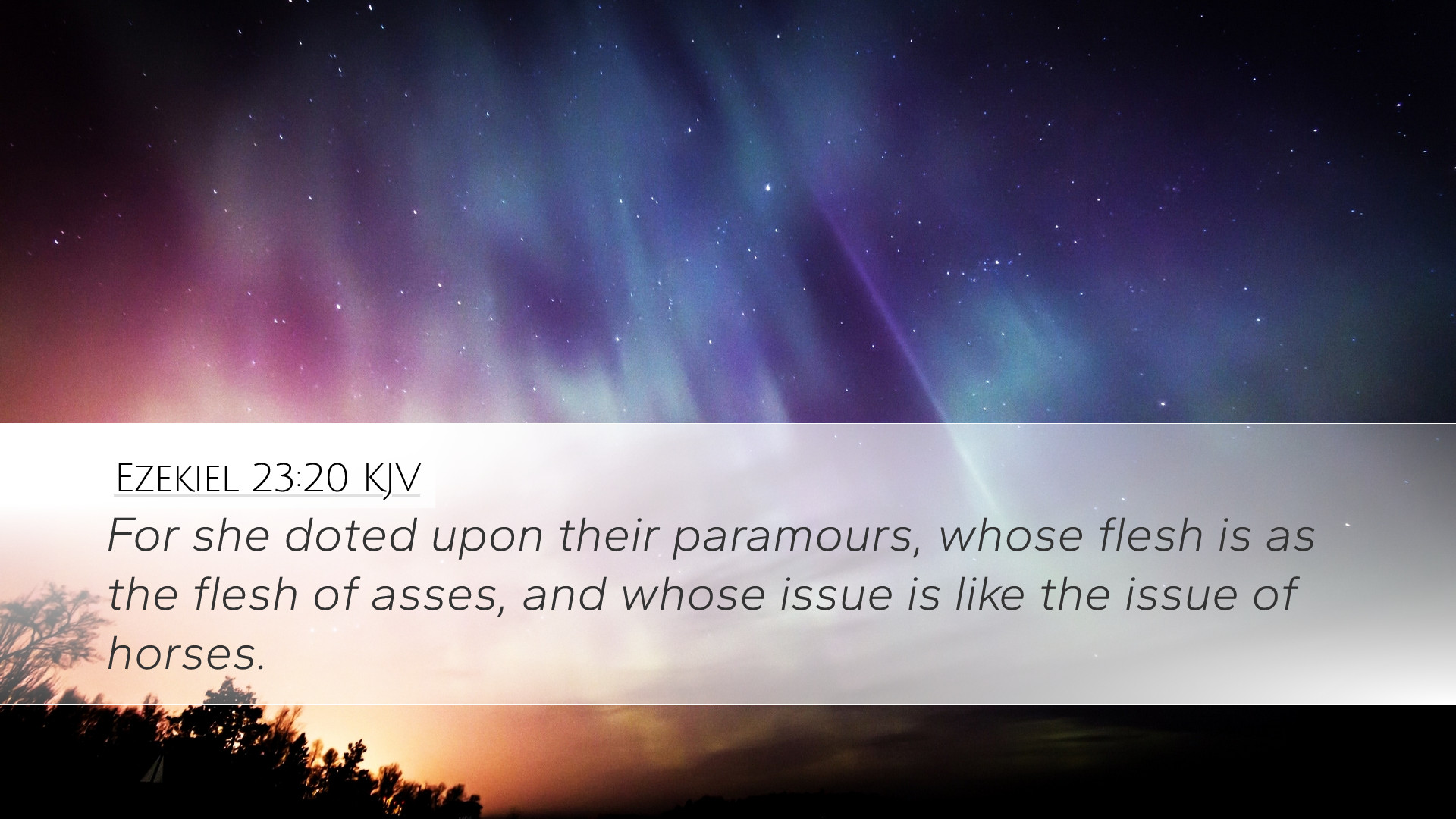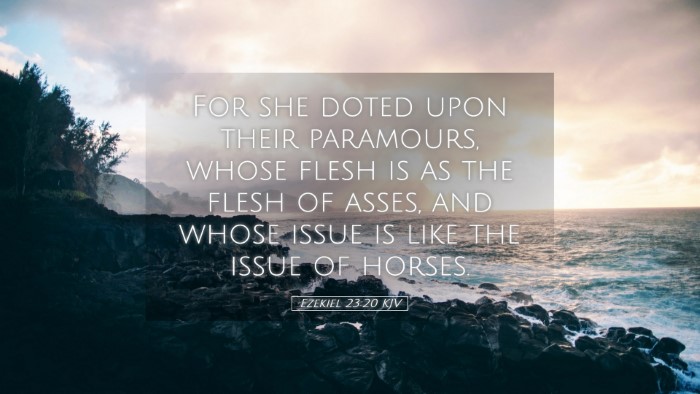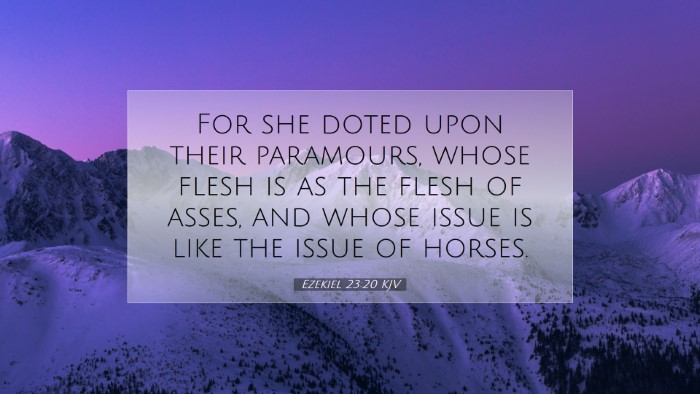Commentary on Ezekiel 23:20
Ezekiel 23:20 states: "For she doted upon their paramours, whose flesh is as the flesh of asses, and whose issue is like the issue of horses." This verse is part of a larger allegorical narrative in which the prophet Ezekiel personifies the two kingdoms of Israel as two sisters, Oholah and Oholibah. This specific verse presents a graphic illustration of their unfaithfulness and infatuation with foreign powers, emphasizing the nature of their spiritual adultery.
Contextual Analysis
The chapter serves as a metaphor highlighting the spiritual decline of Israel and Judah. The language utilized is intentionally provocative, aiming to evoke a shocked response from the audience. This illustrates not only the desperation of the situation but underscores God’s view of idolatry and unfaithfulness.
Insights from Matthew Henry
Matthew Henry, in his commentary, offers a deep reflection on the nature of sin as depicted in this verse. He highlights how the "doting" of the sisters resonates with spiritual lust. The comparison of the lovers' bodies to that of beasts emphasizes the degrading nature of idolatry. Henry explains that these foreign nations represent the destructive allurements that can lead Israel and Judah away from their devotion to God.
-
Spiritual Adultery: Just as Oholah and Oholibah sought fulfillment in their relationships with foreign nations, so too can people today become ensnared in sin by seeking their identity and satisfaction outside of their covenant relationship with God.
-
Degradation through Sin: The imagery of flesh and issue serves to illustrate how far God's people have strayed, engaging in practices that dehumanize them and contradict their divine calling.
Insights from Albert Barnes
Albert Barnes interprets this verse within a broader context of prophetic warnings against Israel’s alliances with other nations. He points out that the "flesh" of the paramours represents the allure of worldly pleasures and materialism that enticed Israel away from spiritual fidelity. Barnes elaborates on the dangers of such enticements:
-
Worldly Allurements: The reference to "flesh as the flesh of asses" symbolically represents the base and carnal desires that were characteristic of these foreign nations. Barnes cautions that when the church looks to the world for satisfaction, it invariably leads to moral decay.
-
Stark Contrast: The stark portrayals serve as a reminder that spiritual fidelity is paramount; pursuing idolatrous practices leads to severe consequences, both individually and communally.
Insights from Adam Clarke
Adam Clarke provides a detailed exegesis of the imagery presented in this verse. He explicates that the graphic nature serves a purpose — to expose the futility of turning to "fleshly" things for fulfillment. Clarke emphasizes:
-
Repercussions of Idolatry: The metaphorical comparisons illustrate not just the physical unfaithfulness of Oholah and Oholibah but their spiritual betrayal, revealing the destructive nature of idolatry.
-
God's Perspective: Clarke points out that God views Israel’s infidelity with deep concern, as it symbolizes a betrayal of the covenant established, invoking severe divine wrath on those persistently unfaithful.
Application for Today
As modern readers of Ezekiel 23:20, scholars, theologians, and students can draw several applications:
-
Discernment in Relationships: Just as Israel's alliances led them away from God, contemporary believers must exercise discernment in their relationships, striving to maintain spiritual integrity in a world filled with competing influences.
-
Recognizing the Cost of Infidelity: This verse serves as a sobering reminder of the consequences of spiritual unfaithfulness, encouraging individuals to evaluate their loyalties and affections.
-
The Call to Repentance: The graphic nature of Ezekiel's words invites readers to a deeper repentance towards God, renewing their commitment to Him and turning away from anything that threatens that commitment.


